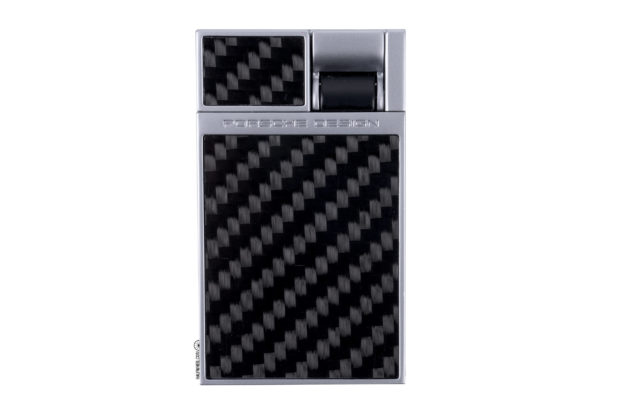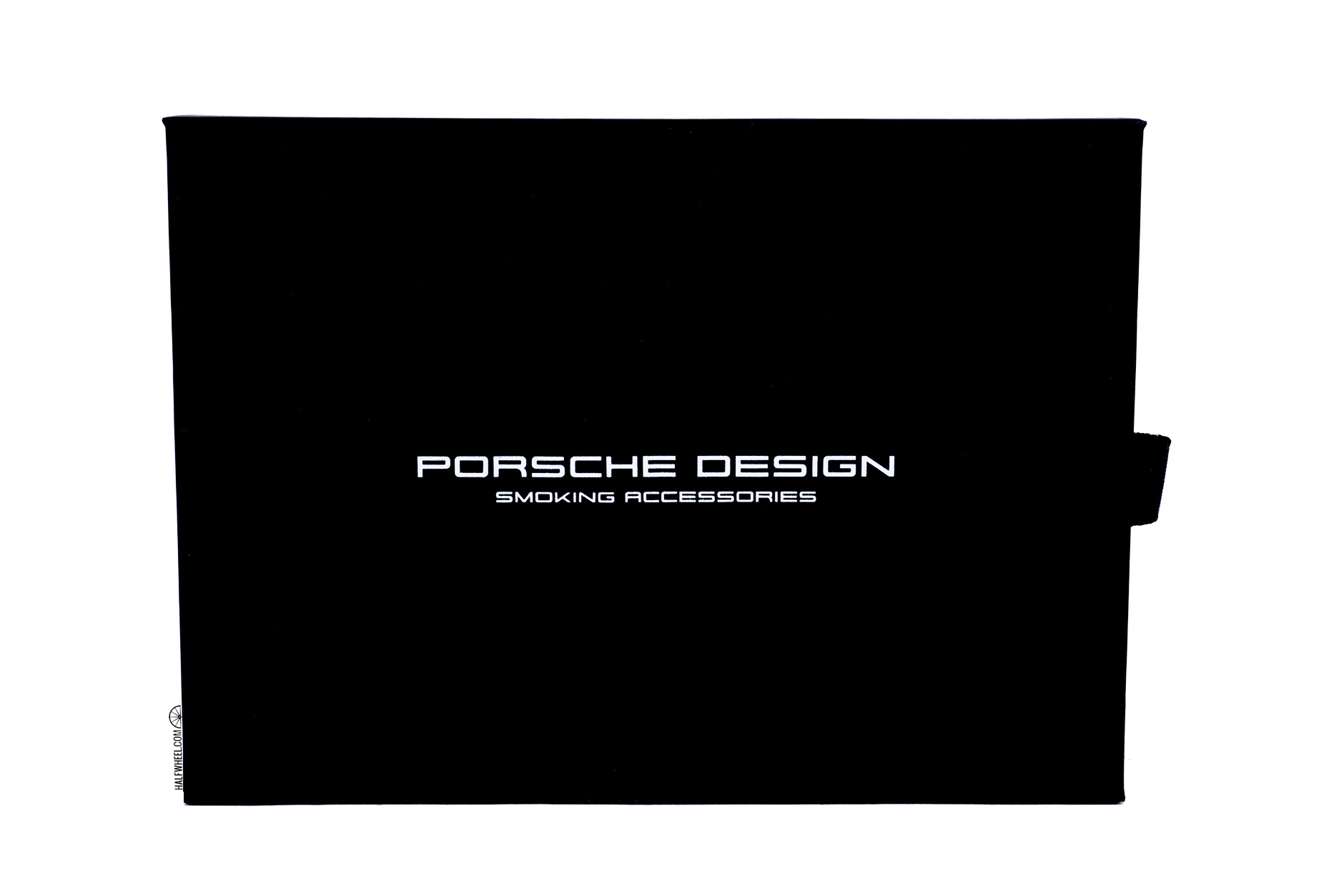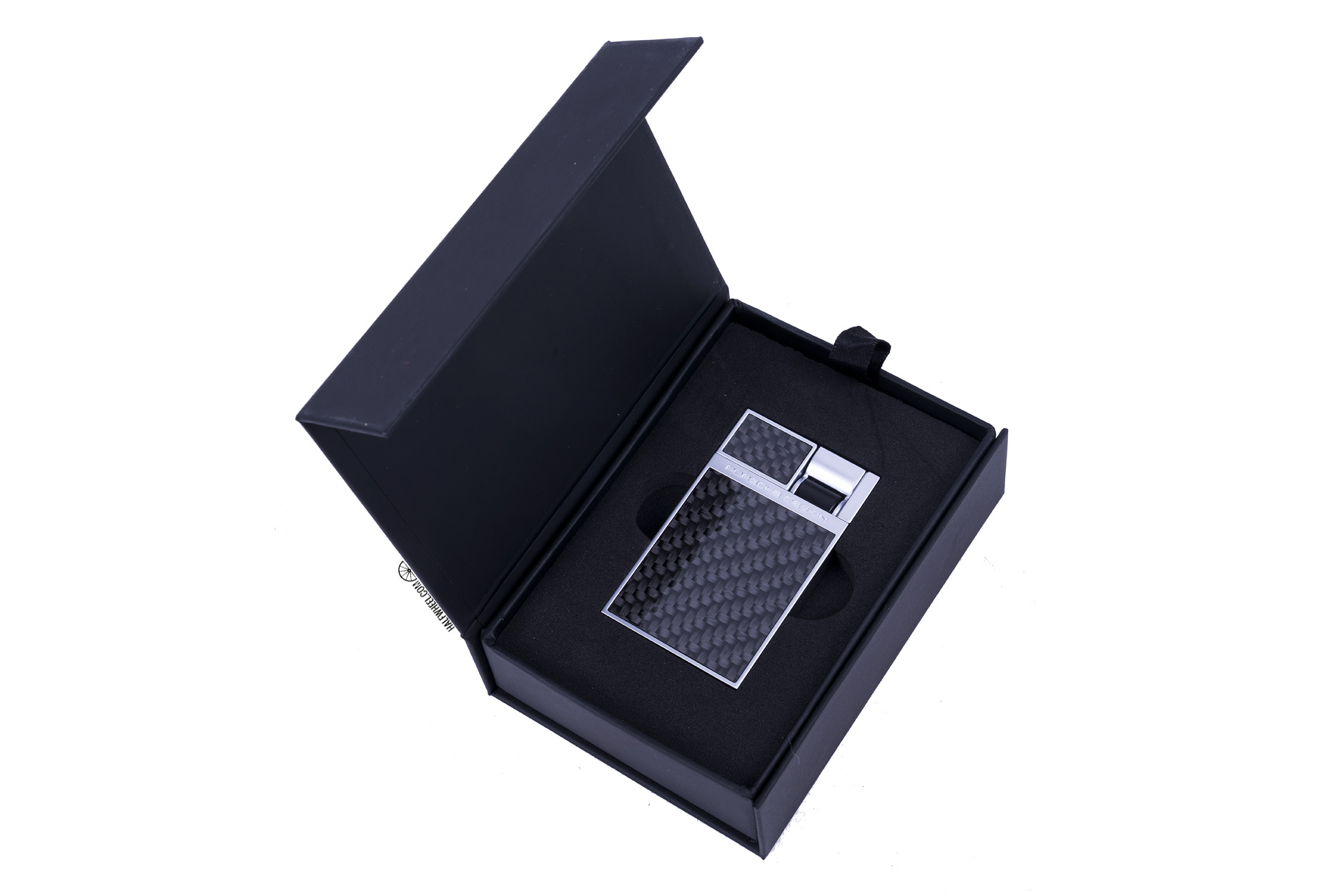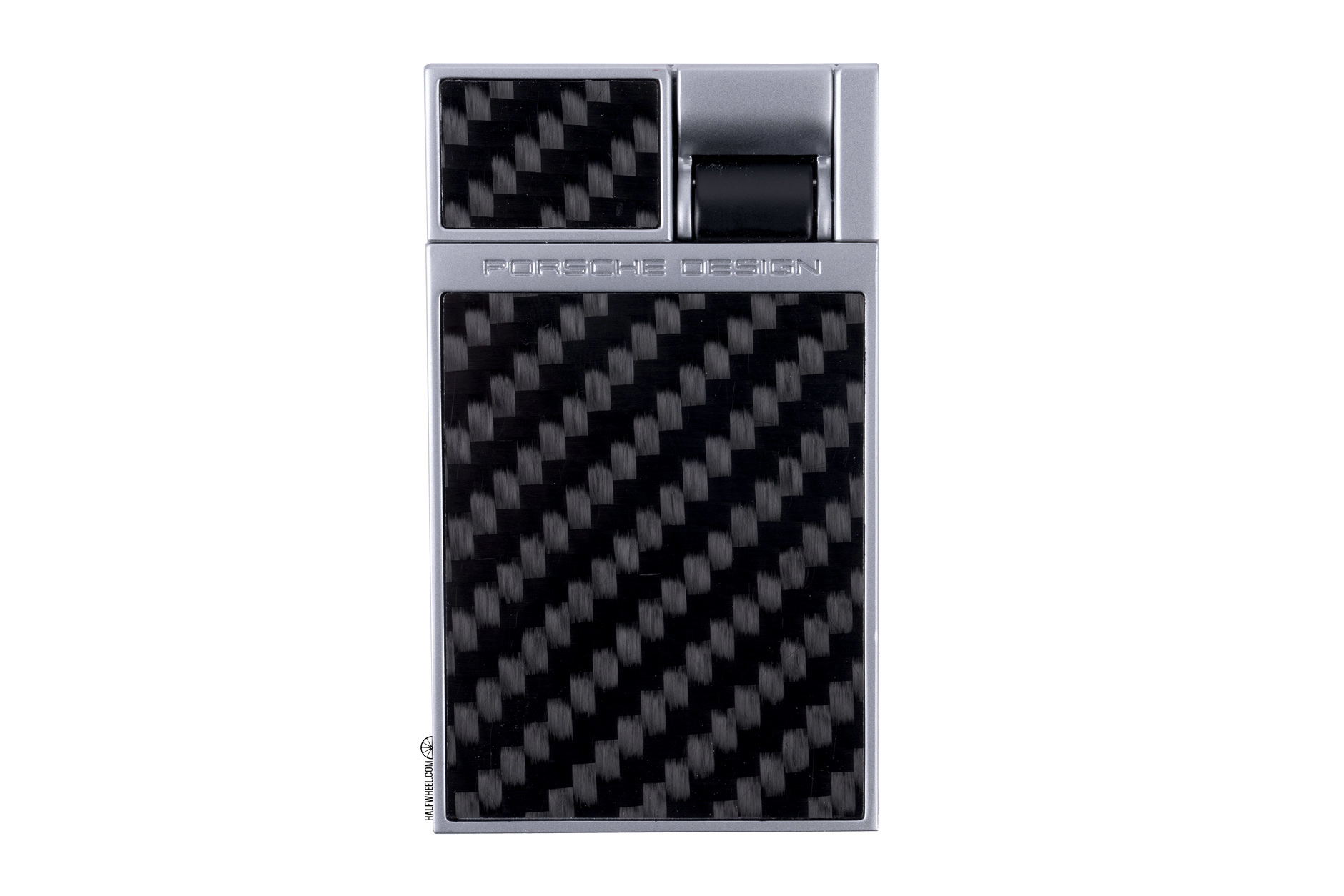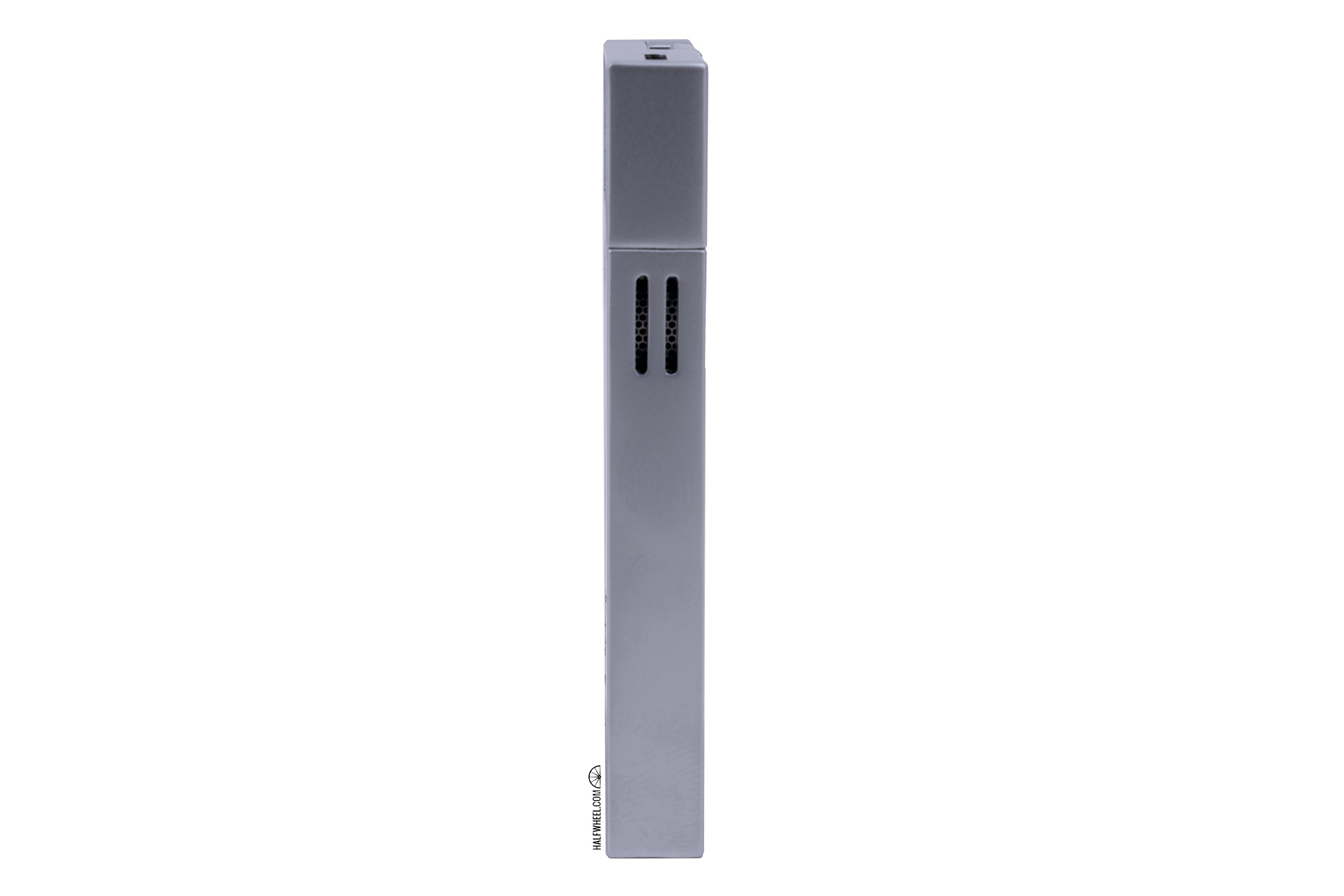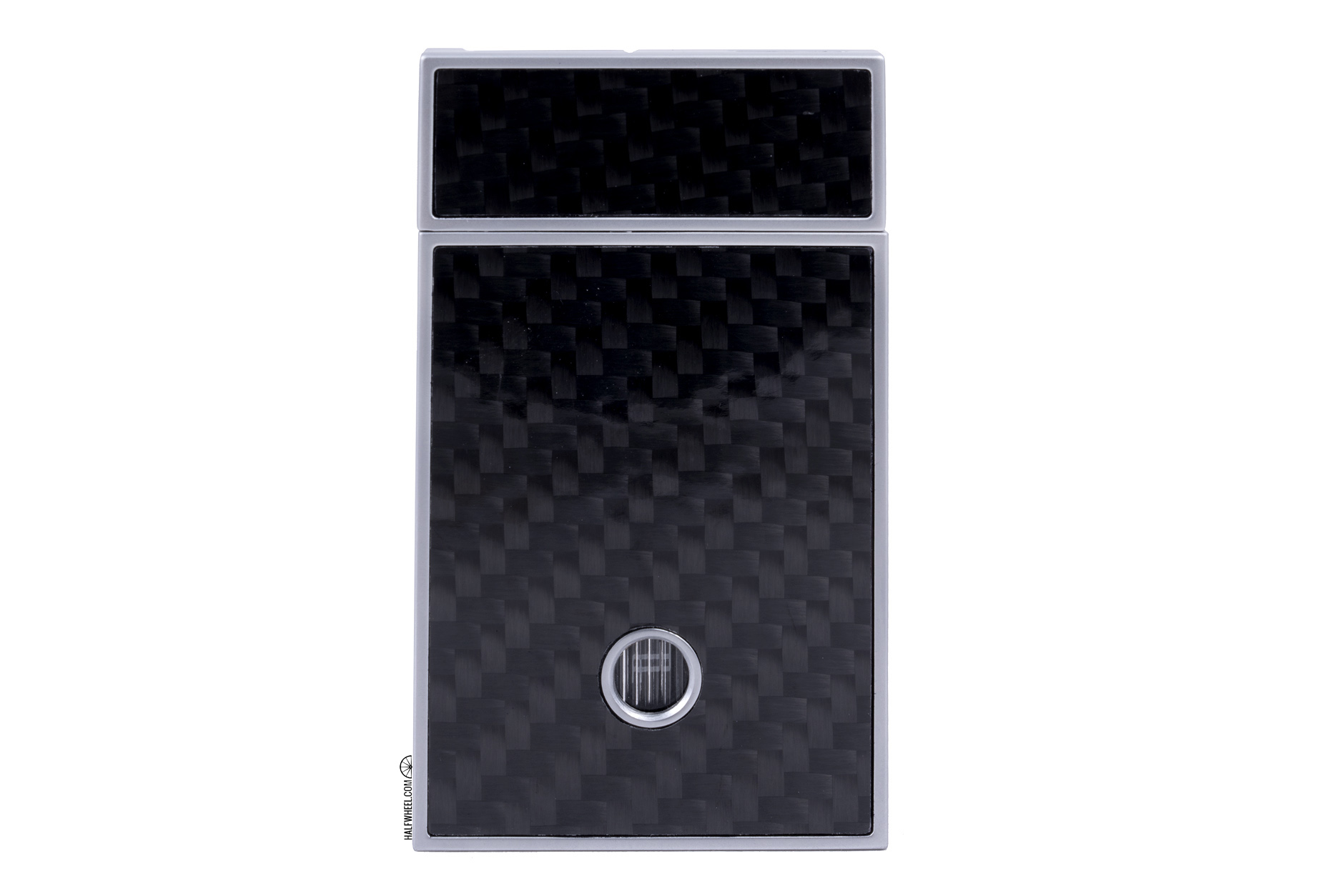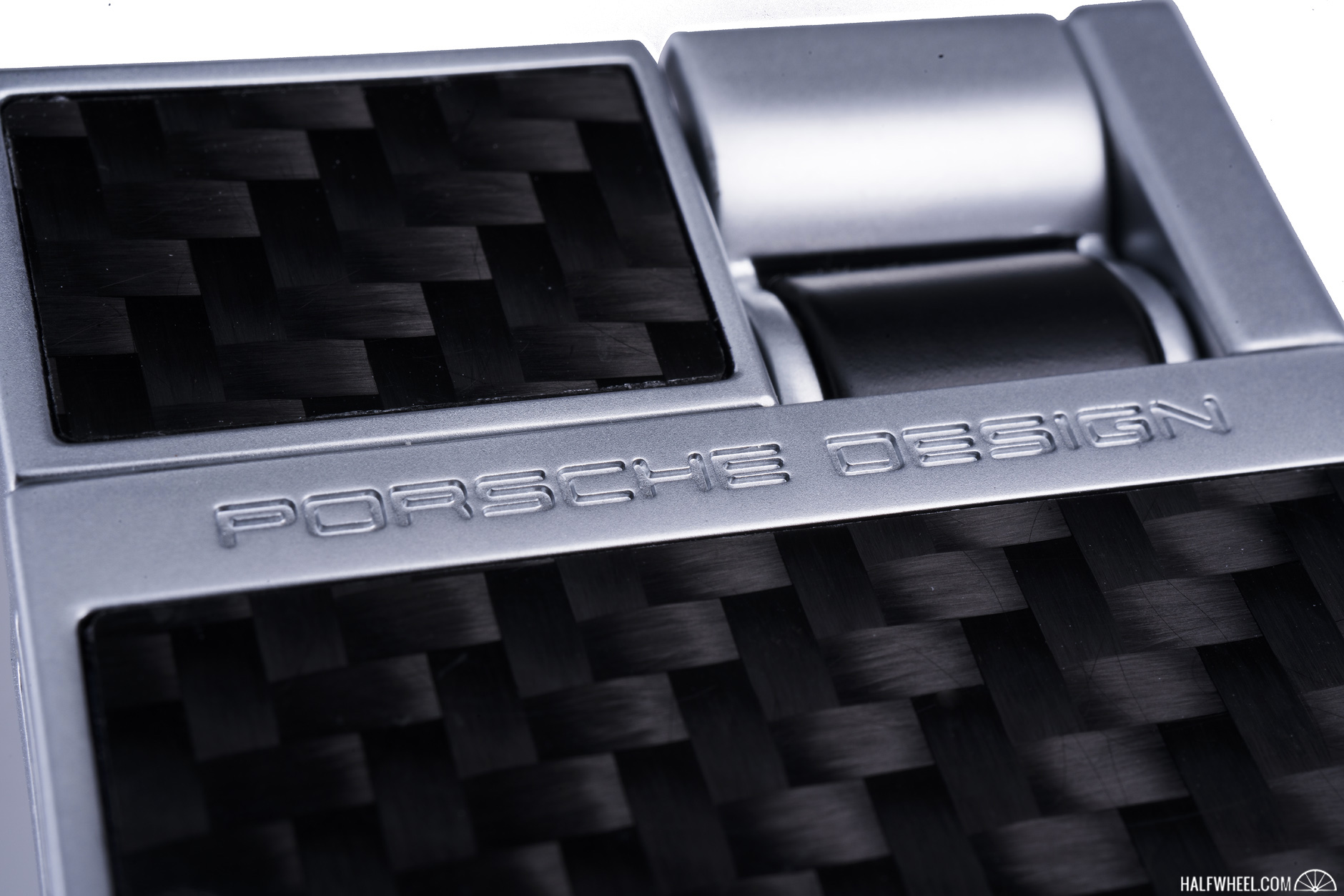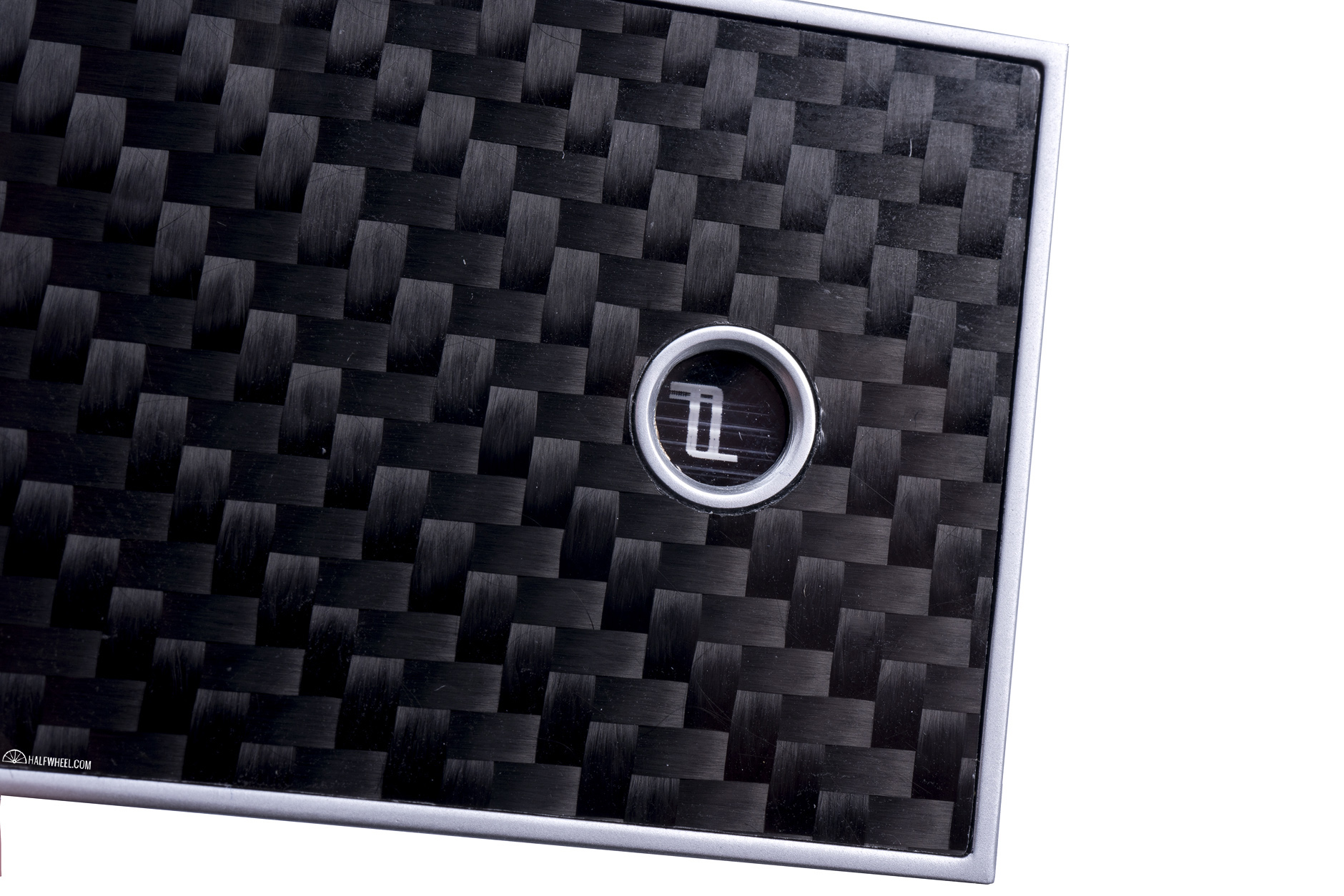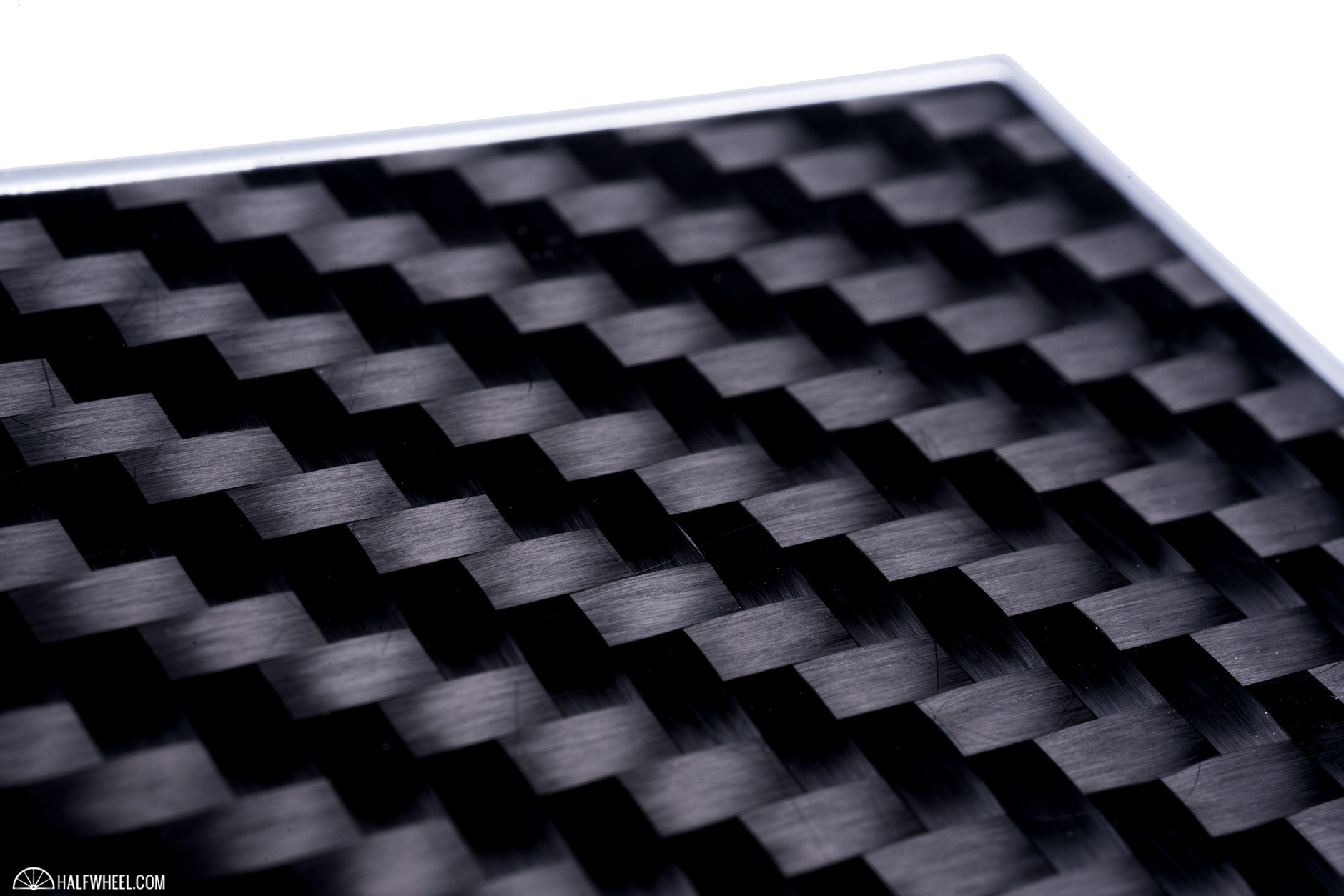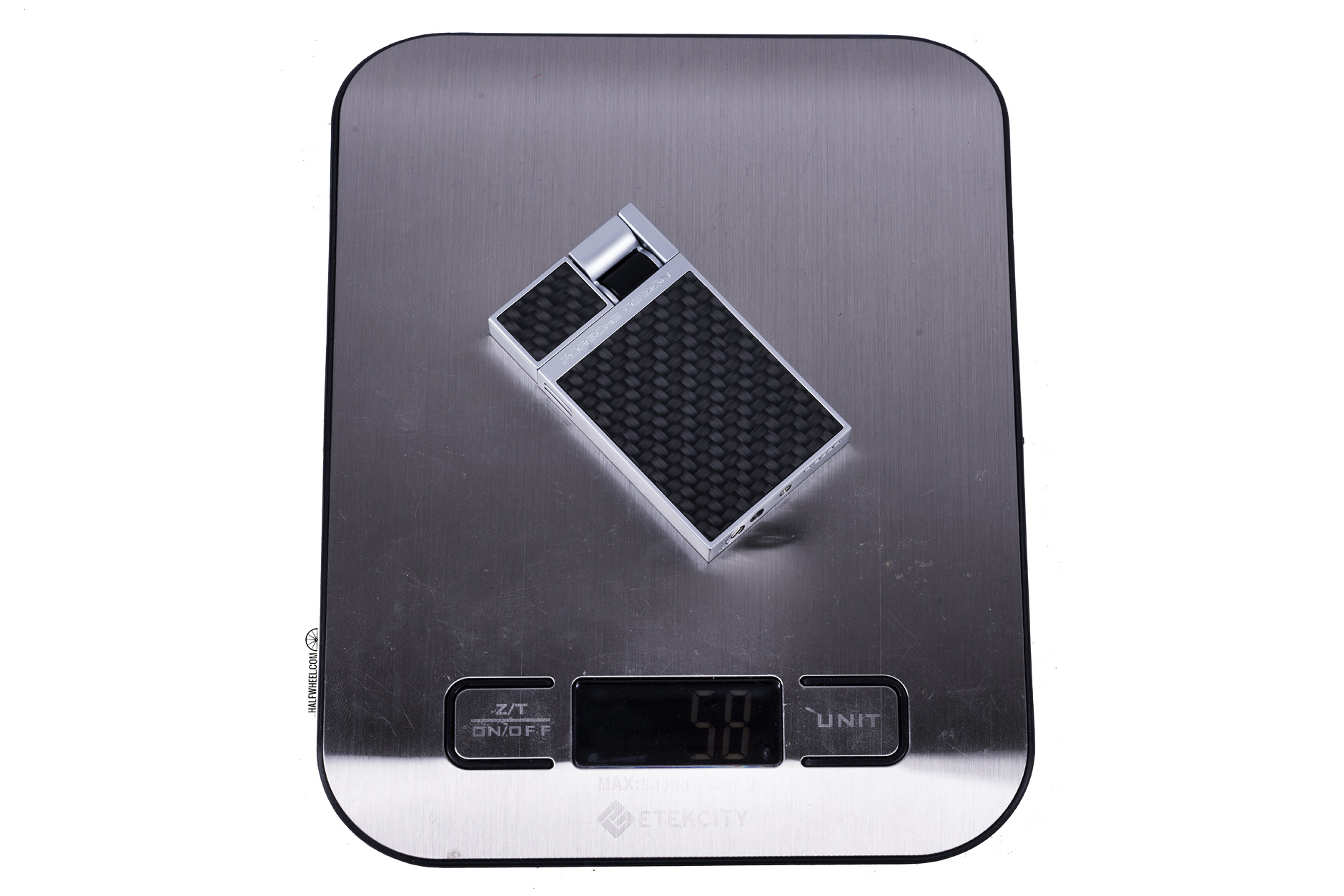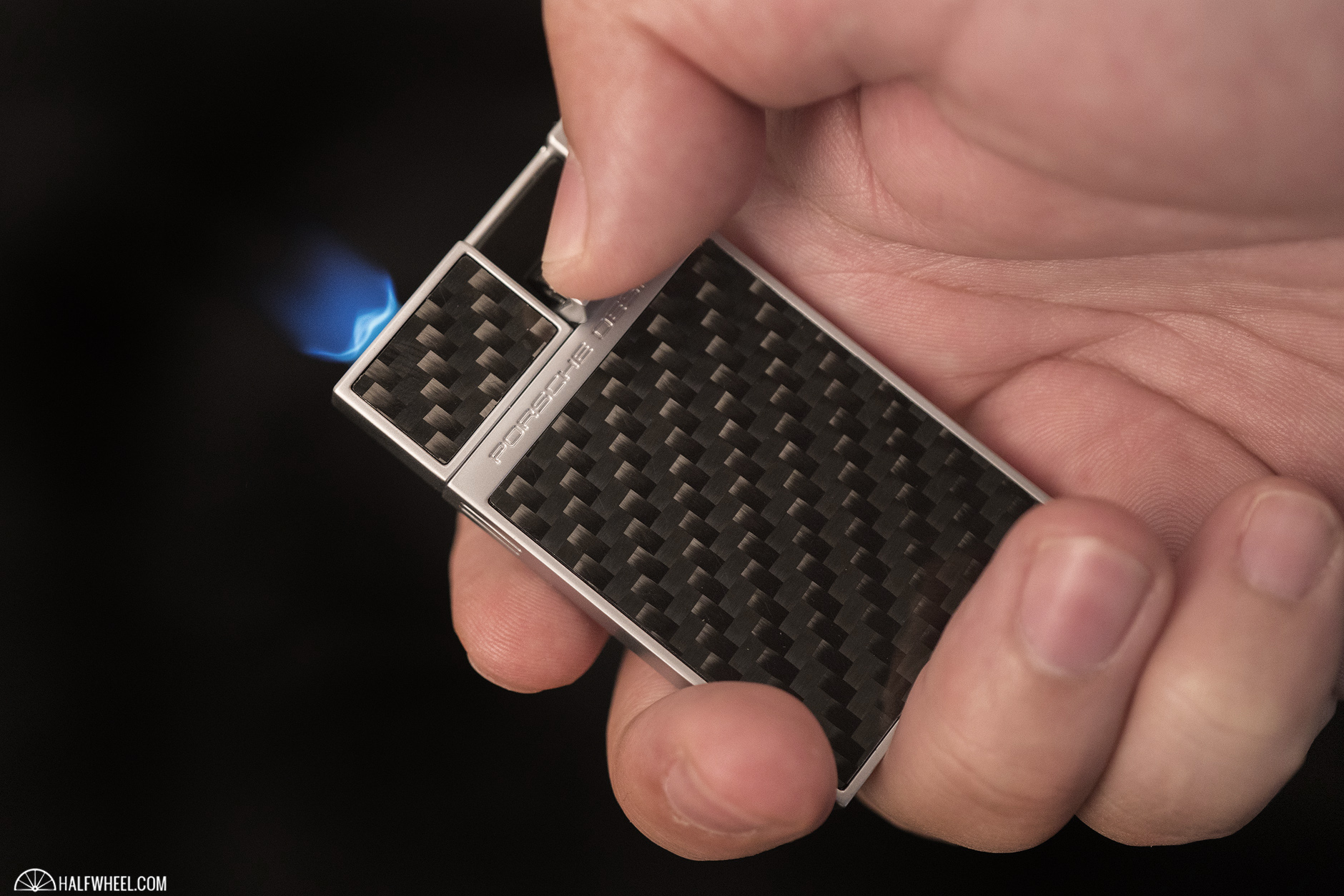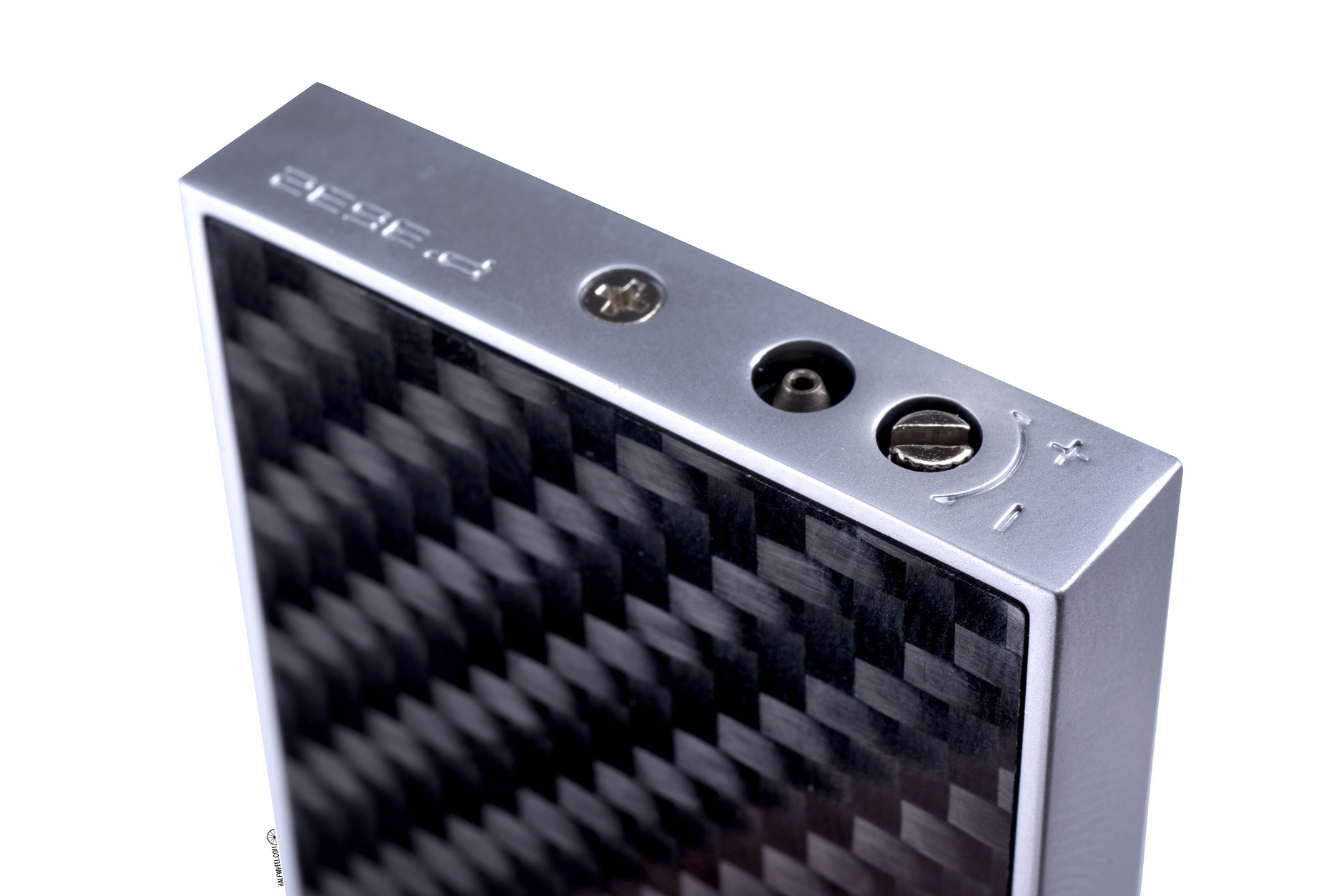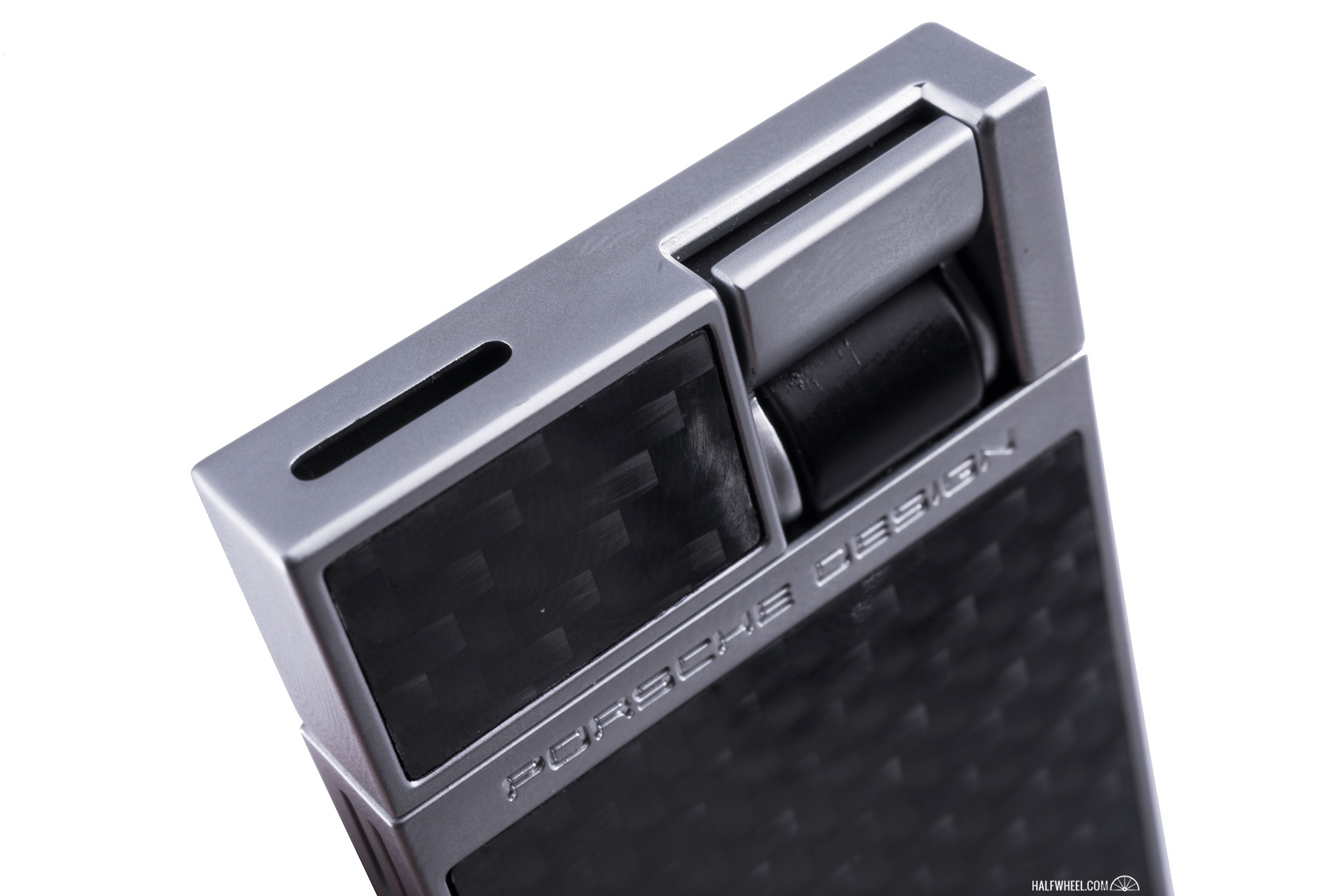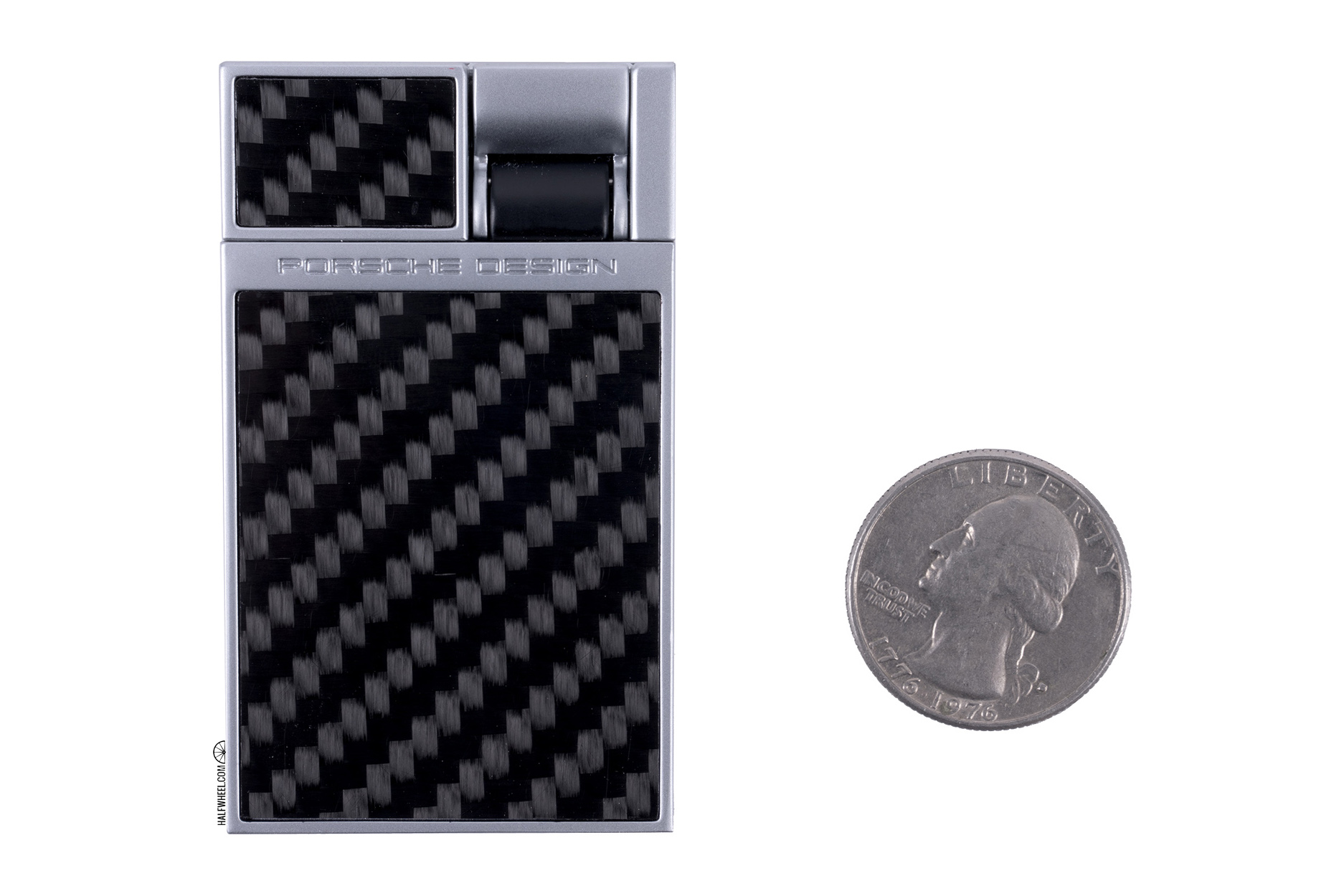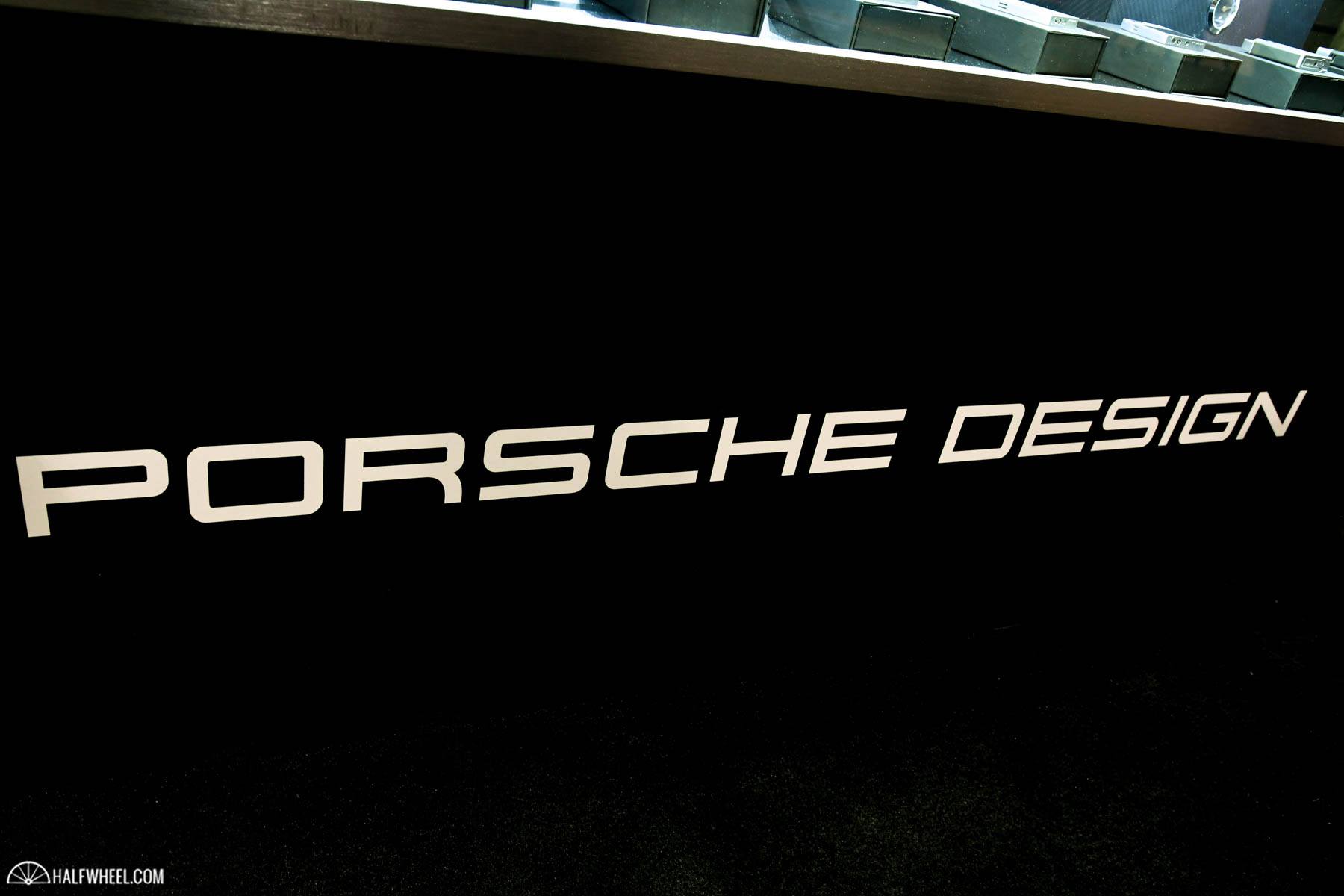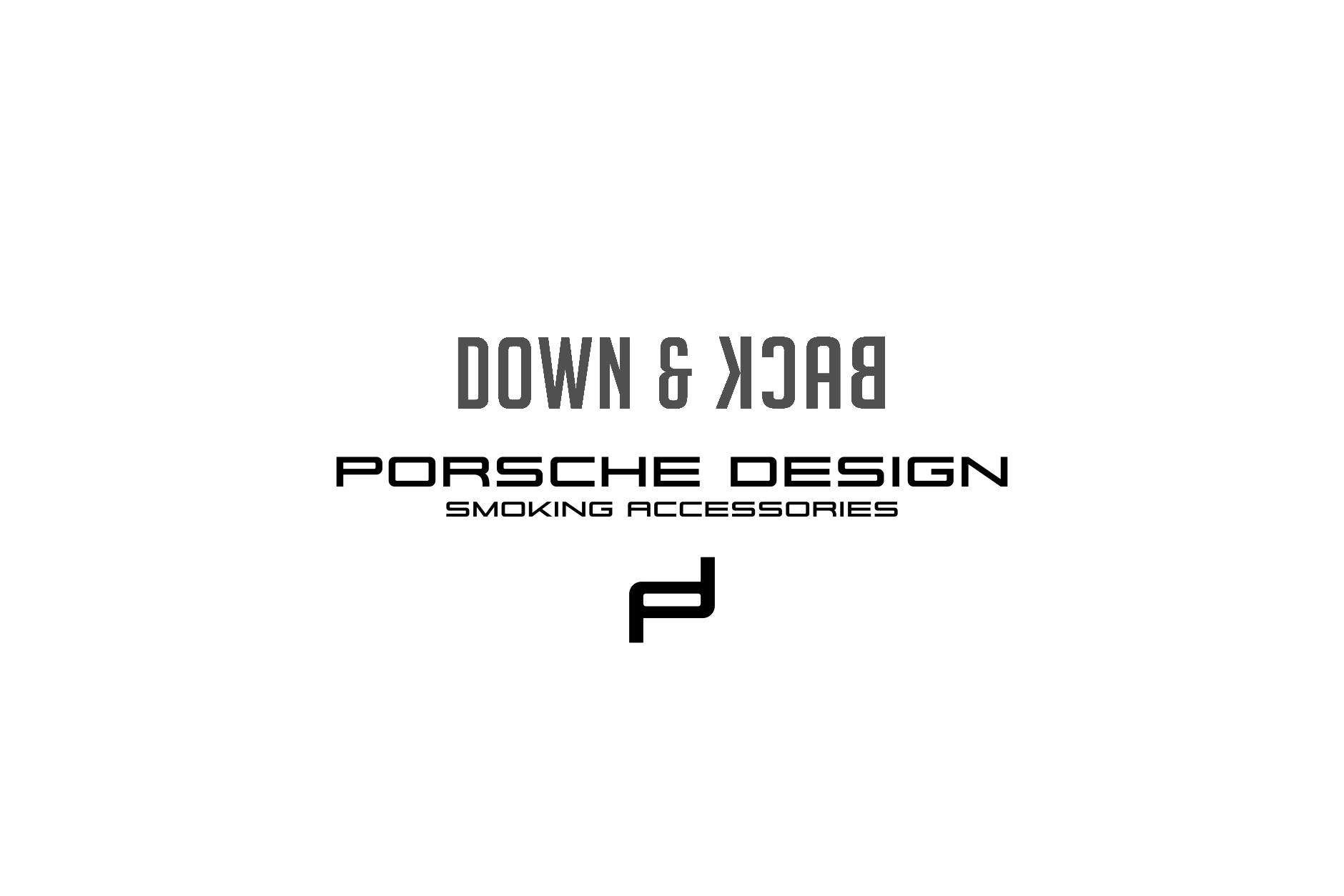There’s almost no question as to what the name Porsche conjures up in the mind: high-performance, luxury sports vehicles. But there’s also another company bearing the name of Ferdinand Alexander Porsche: Porsche Design.
The studio and design house, which launched in 1972, started by bringing a unique approach to timepieces, typewriters, eyewear and pipes, eventually expanding to clothing, luggage and bags, electronics, knives, pens, fragrances, skin care and an expanded selection of smoking accessories, including humidors, cigar cutters and lighters. The company’s philosophy is rather simple: optimize function while reducing the form right down to the essentials.
When looked at through that lens, the Heber takes on a slightly different appearance, crafted not just as a lighter but also a piece of design and an exercise in efficiency.
The Heber lighter, or P’ 3632 as it is referred to on the company’s website, is available in seven colorways. This lighter, the P’ 3632 Carbon Lighter, is priced at $165, while six other color options are available, each with an MSRP of $150:
- Cathay Spice (Blue)
- Grey
- Matte Black
- Silver
- Limoges (Tan)
- Titan (Cream)
WHAT IS IT?
The Porsche Design Heber, or P’ 3632 Lighter Carbon as it is known on the company’s website, is a flat flame single torch lighter. Aesthetics aside, it is designed to be a lightweight, portable and pocket-friendly while delivering a more efficient flame by way of spreading it out to cover a great surface area of the foot of a cigar.
WHAT MAKES IT SPECIAL?
Other than its overall design, there are two specific things that stand out about the Porsche Design Heber: the flat flame, and the ignition mechanism. The flat flame on its own is much like what other companies are delivering, a wide, w-shaped flame that spreads out the flame to offer an experience comparable to that from multi-jet lighters while only requiring a single torch. The ignition meanwhile, eschews the more common mechanisms such as a pull-down button on the front of the lighter or a side-squeeze lever in favor of a small metal and plastic tab that gets pulled down to begin the flow of fuel and ignite the flame. Once the process is figured out—which I found can take some people a few tries—it becomes natural to use your thumb to flip it down while curling your fingers around the lower part of the body.
PROS
- The ignition is remarkably solid; as long as there was fuel in the tank, the Heber seemed to light without issue.
- It is about as sleek of a design as you’ll find, certainly in the same class as other well-regarded lighters already on the market.
- The size is fantastic, substantial but not bulky and easy to fit in a pocket or travel humidor.
- Its one-gram fuel tank holds enough fuel to light three or four cigars without issue, more if you are using it on lighter tobacco and smaller ring gauges. The seeming efficiency of the flat flame design also helps stretch butane consumption.
- The build quality feels remarkably solid, with the ignition lever offering both an audible and tactile response to engaging and releasing it.
- The carbon fiber design on this model is gorgeous and eye-catching, further helping this model stand out from its competition. It also didn’t show any wear after several weeks of regular use.
CONS
- Somewhere along the way during my testing of the Porsche Design Heber, the lighter seemed to start getting quite hot during use on its upper portion. While this may seem like something to expect from a torch lighter, it seemed as if for the first several weeks of use it was immune from getting hot. It makes me wonder if there isn’t some sort of internal coating that has worn off and is used as a selling point more so than a long-term feature.
- The fuel window is functional but lags behind what Colibri, Lotus and XIKAR—among others—have been doing by tinting the window to make it easy to see the fuel.
- Likewise with the flame adjustment screw; it works, but is also a reminder of how convenient other designs can be. This is one idea I would love to see Porsche Design steal from Elie Bleu or S.T.Dupont; that lighter has a small metal tab that flips out and makes an adjustment much easier.
- It’s not the least expensive option on the market and this would be one lighter I would hate to leave behind or have it fall out of my pocket.
- There’s no case included or offered from what I could find, which would seem to be a natural add-on for a lighter of this quality and price. It seems that not many higher end companies offer cases as the norm, so it’s not like this is a comparative detriment.
- It’s also singular in function, meaning there is no built-in cutter, but then again few—if any—lighters of this size offer such a thing. On a side note, that would be one project I be very interested in seeing Porsche Design tackle as combination lighter/cutter units are rather interesting.
THE COMPETITION
The flat flame lighter space has become an increasingly crowded space in recent years with new entries from several companies competing against the stalwart models from Lotus, though they have been updated since their original release. The price tag to get into the flat flame segment is fairly considerable, starting at about $80 and going up from there as the technology has not migrated to budget lines yet.
- S.T.Dupont Slim 7 — Arguably the Heber’s most direct competitor, this is one of the slimmest lighters on the market, and it works quite well though comes with a slightly higher price tag ($185) and feels like it sacrifices a bit of fuel capacity for the sake of size though it’s also good to light 3-4 cigars in one filling. While it works quite well, it does feel a bit under-matched at times, something I can’t say I ever felt with the Heber. Not many lighters could get smaller than the Heber and still deliver impressive performance, but the Slim 7 does a commendable job in that regard.
- Elie Bleu J-12 Plano Flat Flame Lighter — At $200 it’s the most expensive of the bunch, but doesn’t deliver the performance expected from the price tag. There were some ignition misfires and it gets quite warm during use and its flame feels a touch smaller than the Heber, though it is beautiful in its own right.
- XIKAR Verano — Coming into this review, this is my leader in the clubhouse when it comes to flat flame lighters. It earned high marks for its build quality, reliability and performance. At just under $80 it’s not a value-oriented lighter per se, but it is the most affordable of the bunch and one that merits the most serious consideration. If the price tag on the Porsche Design Heber is too high for your liking, this is the best pick.
- Lotus Citadel Flat Flame 3 — A familiar column-style design with a push-button ignition, retractable lid and a built-in punch cutter on the bottom. With an MSRP of $120 it’s middle of the range for the comparison, but still not cheap.
- Lotus El Presidente — A different body style that drops the cutter and uses a pull-down ignition while staying in an all-metal housing. It’s also a bit cheaper, with an MSRP of $100.
A FUN FACT
Porsche Design also makes a hookah, which can be yours for just $1,950.
SHOULD YOU BUY IT?
Yes.
Assuming the price isn’t an issue, this is a solid lighter that has a lot to offer in terms of function, design and build quality, not to mention that it is a brand that you don’t see every day. It’s on par with the XIKAR Verano in terms of performance—except fuel capacity—making it a decision that comes down to price and design when it choosing between the two as far as my favorite. The Verano is the solid standard, the Heber is the slightly more refined, streamlined take on the same concept.
The lighter used for this review was purchased by halfwheel

